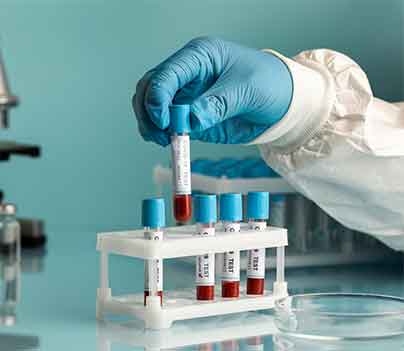-
 Mail us
Mail usinfo@myhealthhospitals.com
-
 Toll Free
Toll Free+91 9111674111
- Book Appointment
Urology
Infertility is defined as the inability of a couple to conceive after one year of regular, unprotected sexual intercourse. It can result from issues in either partner or both.
Male infertility accounts for nearly two-thirds of all infertility cases, often caused by low sperm count, poor sperm motility, hormonal imbalances, or structural problems. The remaining one-third is usually due to female-related factors.
Male infertility can result from several medical, environmental, or lifestyle factors that affect sperm production, quality, or function. Identifying the cause helps determine the best treatment approach.

Male infertility often has no visible signs other than the inability to conceive a child. However, depending on the underlying cause, certain symptoms or medical history may indicate fertility issues.

In many couples, both partners may contribute to infertility, so evaluation of both is important. Diagnosing male infertility involves identifying underlying causes through clinical examination and specialized tests.
Common diagnostic steps include:

When addressing infertility, both partners should undergo evaluation to identify the underlying causes. Treatment for male infertility depends on the specific diagnosis and results of clinical and laboratory tests.
Common treatment options include:
At My Health Hospitals, Kukatpally, our expert urologists and andrologists provide personalized, evidence-based treatments using advanced reproductive technologies for the best possible outcomes.

Ask your primary healthcare provider to refer you to an urologist who specializes in male infertility. You may also work with a reproductive endocrinologist.
If your infertility is affected by lifestyle choices such as smoking and working around certain chemicals, you might be able to reduce your risk. Talk to your healthcare provider about other risk factors and what you can do about them. If you’re going to go through cancer treatment, talk to your healthcare provider about sperm banking.
Don’t hesitate to ask your healthcare provider questions about infertility. Some to consider include:
Male infertility requires treatment in most cases.
If you cannot find answers to your queries, please fill out the ENQUIRY form or call the number below. We will contact you shortly
+91 9111674111Visit any of our My Health Hospitals branches for advanced medical care and expert consultations.
H.No 15-24-212, MIG-212, Rd Number 1, K P H B Phase 1, Kukatpally, Hyderabad, Telangana 500072
H.No:-12-5-30, WhiteHouse, Moula Ali Rd, South Lalaguda, Tarnaka, Secunderabad, Telangana 500017